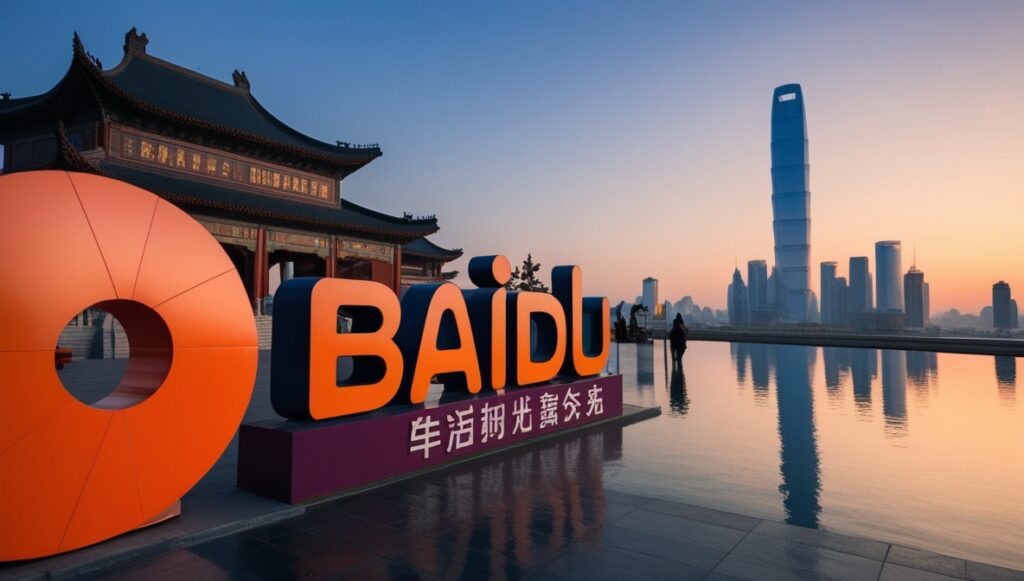
As the dominant search engine in China, Baidu holds immense significance for businesses seeking to tap into the Chinese market. Understanding the key ranking factors for Baidu can significantly enhance your visibility on the platform, especially when targeting Chinese consumers. In this article, we’ll dive into the essential Baidu SEO factors, focusing on how businesses outside China, including those in the USA, can optimize their websites and services to perform well in Baidu’s search results.
1. Content Localization for Baidu SEO

Baidu primarily caters to mainland China, where Simplified Chinese is the dominant language. Therefore, content localization is crucial. Websites aiming to rank on Baidu must provide content in Simplified Chinese, not just for user experience but also because Baidu’s algorithm favors this language. Unlike Google, which might prioritize user intent over language, Baidu rewards content that matches local linguistic standards. This means keyword optimization should focus on relevant Chinese terms, including the use of Chinese long-tail keywords.
Moreover, Baidu prioritizes culturally appropriate content, ensuring that websites comply with Chinese internet regulations such as censorship laws and the “Great Firewall.” If a website is flagged for non-compliant content, it might not even be accessible in China.
2. On-Page SEO and Meta Tags
When optimizing for Baidu, on-page SEO elements like title tags, meta descriptions, and heading tags are essential. Baidu prefers concise title tags, averaging around 25 Chinese characters. Meta descriptions should include the target keywords early on, as Baidu tends to favor results where keywords appear prominently in titles and descriptions. Additionally, headings (H1, H2, etc.) should be hierarchically structured with keywords strategically placed in key spots, which boosts visibility in search rankings.
3. Mobile Optimization
With mobile users dominating internet traffic in China, mobile optimization is a critical ranking factor. Baidu has a mobile-first approach, favoring sites that load quickly and are fully optimized for smartphones. Implementing Accelerated Mobile Pages (AMP) can be advantageous in improving your site’s ranking on mobile search results. Baidu’s algorithm prioritizes fast-loading, mobile-friendly websites, especially those hosted within China or using Chinese CDNs to improve load times.
4. Backlinks and Internal Linking
While backlinks are vital for SEO on any search engine, Baidu places a particular emphasis on the quality of those links. Links from websites hosted within China are particularly valued, and high-quality links from government or authoritative domains (.gov.cn, .edu.cn) can significantly boost your website’s rankings.
Baidu is stricter than Google when it comes to spammy or low-quality backlinks. Websites with a poor link profile risk penalties or lower visibility. It’s equally important to focus on internal linking within your content. Ensuring a clean, well-structured internal linking system can enhance user navigation and help Baidu’s crawlers index your site more effectively.
5. Baidu-Specific Services and Ecosystem
Unlike Google, Baidu integrates heavily with its own ecosystem, which includes platforms like Baidu Baike (an equivalent of Wikipedia), Baidu Zhidao (a Q&A platform), and Baidu Wenku (a document-sharing platform). Websites that engage with these platforms—either through content syndication or active profiles—are more likely to gain visibility.
Baidu prefers to keep users within its ecosystem, which explains why a significant percentage of top-ranking results include Baidu’s own services. For businesses, leveraging Baidu’s ecosystem is an effective way to build credibility and improve rankings.
6. Technical SEO and Site Structure
Technical SEO for Baidu has its own quirks compared to Google. First, the site must be well-structured, with short URLs and minimal subdirectories. Baidu does not favor URLs with Chinese characters, even though content should be in Simplified Chinese. Moreover, Baidu is not as sophisticated as Google in crawling JavaScript, so websites should minimize heavy use of dynamic content and focus on simple, easily crawlable HTML structures.
Another important factor is page load speed. Since websites hosted outside of China can be slow due to the Great Firewall, businesses targeting Baidu users should consider hosting within China or using a reliable Content Delivery Network (CDN) to ensure faster load times. Speed is one of Baidu’s top-ranking factors, especially for mobile users.
7. Security: HTTPS and Trustworthiness
Baidu places a strong emphasis on security, with HTTPS being a key ranking factor. Websites without SSL certificates are likely to be ranked lower, as security is paramount for Baidu, which aims to protect its users from malicious content. Additionally, trustworthiness plays a significant role. Sites that can demonstrate authority through E-E-A-T (Expertise, Authoritativeness, and Trustworthiness) principles, similar to Google, tend to perform better.
8. Social Proof and Engagement
Engagement on social media platforms that integrate with Baidu, such as Baidu Tieba (forums) or Weibo (similar to Twitter), can also influence your SEO performance. Social proof, in the form of user-generated content, likes, shares, and discussions, helps build credibility and boosts rankings.
9. Image Optimization
Baidu’s algorithm places great importance on images and alt tags. Images should be well-optimized, with file sizes minimized for quick loading. Including keywords in the alt tags is also essential, as Baidu uses these to understand the content of the images.
Conclusion

For companies like Dust Digital Marketing Ltd. aiming to attract USA customers to your Baidu SEO services, it’s crucial to highlight your expertise in these specific Baidu SEO factors. Baidu’s unique ecosystem, its focus on local content, and stringent security requirements create a challenging yet rewarding SEO landscape. By optimizing your clients’ websites for Baidu, you can help them penetrate the vast Chinese market and gain a competitive edge.
By focusing on these SEO factors—content localization, mobile optimization, backlinks, and technical SEO—your agency can effectively guide US-based businesses to succeed on Baidu, bringing them closer to the lucrative Chinese market.

